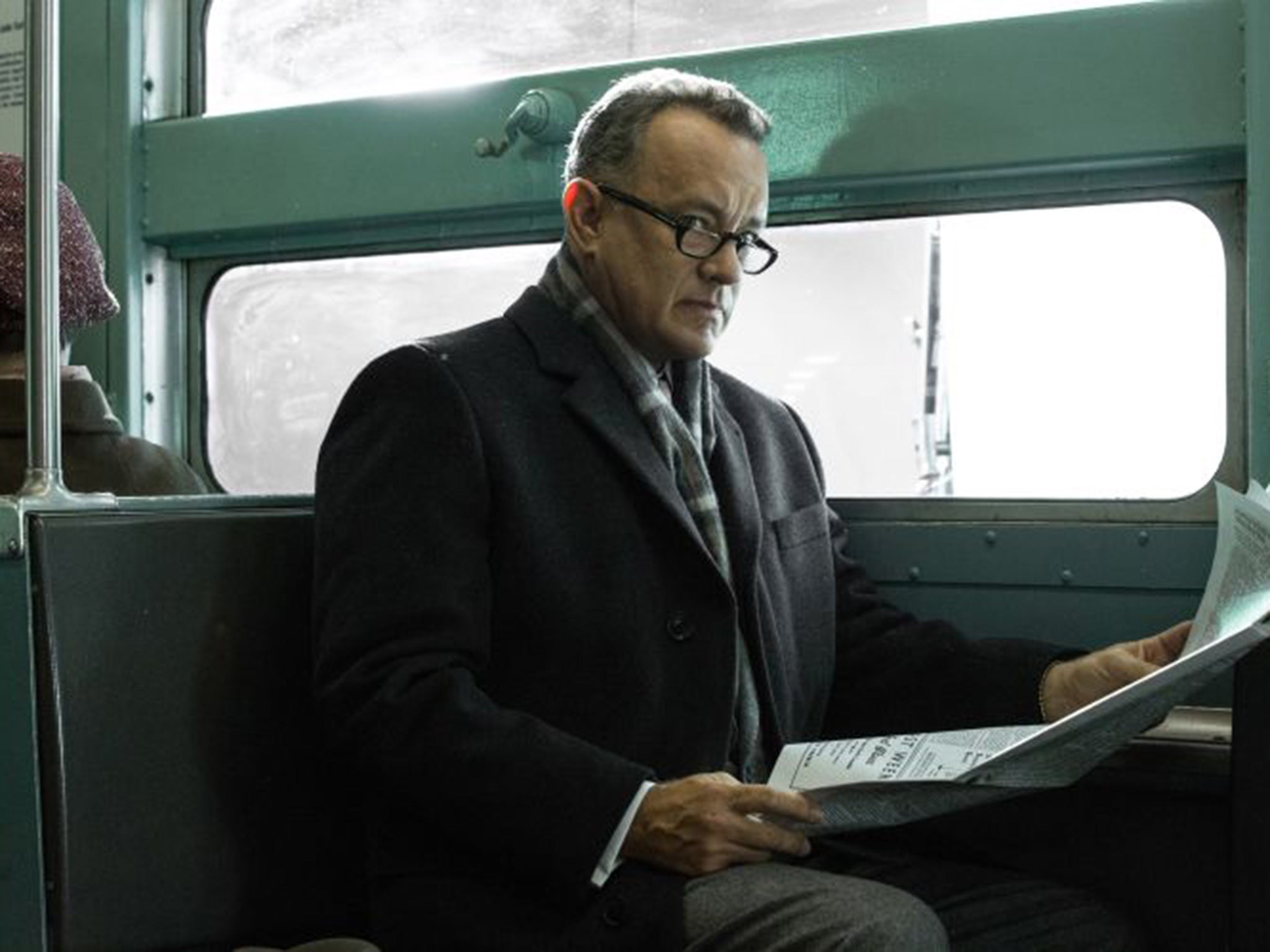Bridge of Spies, New York Film Festival review: Steven Spielberg keeps the flag flying as he tackles the Cold War
Spielberg’s craftsmanship is breathtaking - we are in a world of subterfuge and darkness

Your support helps us to tell the story
From reproductive rights to climate change to Big Tech, The Independent is on the ground when the story is developing. Whether it's investigating the financials of Elon Musk's pro-Trump PAC or producing our latest documentary, 'The A Word', which shines a light on the American women fighting for reproductive rights, we know how important it is to parse out the facts from the messaging.
At such a critical moment in US history, we need reporters on the ground. Your donation allows us to keep sending journalists to speak to both sides of the story.
The Independent is trusted by Americans across the entire political spectrum. And unlike many other quality news outlets, we choose not to lock Americans out of our reporting and analysis with paywalls. We believe quality journalism should be available to everyone, paid for by those who can afford it.
Your support makes all the difference.Bridge Of Spies marks Steven Spielberg’s first venture into Cold War espionage movie territory. Co-scripted by the Coen brothers and British writer Matt Charman, it is a consummately crafted, richly layered affair, with fine performances from Tom Hanks and Mark Rylance. The one hitch is that it is just too wholesome.
The film, based on actual events, evokes memories of everything from The Third Man to The Spy Who Came In From The Cold but what it lacks is their seediness and desperate pathos. Spielberg is dealing with duplicity and deception, with a war that does not involve “men in arms” but the spinning of information and misinformation. Somehow, he still manages to make Bridge Of Spies into a rousing flag-waver which celebrates the best of American values.
The film opens brilliantly with a chase/arrest sequence set in Brooklyn in 1957, at the height of the Cold War. Rylance plays Rudolf Abel, a Soviet agent who lives in a New York tenement and seems as dedicated to his painting as to his espionage. FBI agents are on to him. Spielberg’s recreation of Fifties New York is meticulous. He portrays a city in which all the men, Abel included, have crew cuts and dress in jackets and ties. Amid such conformity, it is very hard for the Feds to keep track of their quarry as they follow him through the subway and across packed streets.
As a captured Soviet agent at a time of intense Cold War paranoia and fear about the bomb, Rylance’s Abel becomes a figure of loathing for the American public.
Hanks plays James Donovan, a wily but idealistic insurance lawyer who was part of the American team at the Nuremberg trials. He is assigned now to take on Abel’s defence. The idea is to give the Russian a show trial and then have him executed.
What is intriguing about this part of Bridge Of Spies is how negatively it portrays the American public. As shown here, everyone from cops to senior judges has a lynch-mob mentality. The Soviet agent is the “other” and therefore deserves to die. When Hanks’ lawyer protests that everyone deserves a defence, the cynical response from his bosses is “don’t go boy scout”.
Hanks plays Donovan in his best Clarence Darrow-like fashion. The irony, though, is that it is not his rousing speeches which sway opinion but his pragmatism. The Americans are busy spying on the Soviet Union. How they treat their Cold War prisoners is bound to affect the way the Russians treat any Americans who fall into their hands.
In the second half of the film, the action switches to East Berlin just as the Wall is being built. Donovan has been sent there as a hostage negotiator. He is operating in a private capacity as neither the US nor the Soviets want to acknowledge official ties.
The Berlin scenes, which see Donovan venturing through maze-like streets in search of his contact, the elusive Mr Vogel, have a Kafka-esque feel.

Watch Apple TV+ free for 7 days
New subscribers only. £8.99/mo. after free trial. Plan auto-renews until cancelled

Watch Apple TV+ free for 7 days
New subscribers only. £8.99/mo. after free trial. Plan auto-renews until cancelled
Again, in these scenes, Spielberg’s craftsmanship is breathtaking. We are in a world of subterfuge and darkness. That is why the film’s patriotic optimism ultimately seems so jarring. Spielberg, it seems, just doesn’t do cynicism.
Join our commenting forum
Join thought-provoking conversations, follow other Independent readers and see their replies
Comments